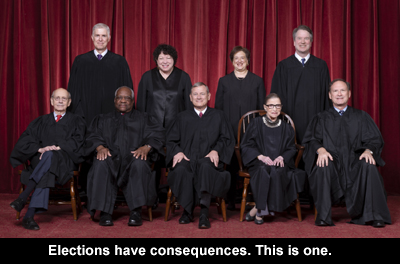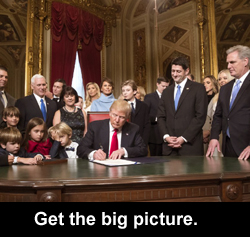Okay, so the “For the People” act did not overcome the filibuster this past week. That was no surprise, of course. Neither was the fact that Republican senators made no effort to specify exactly why they thought the provisions of the act would negatively affect Republicans. They speak in billboards, these people – short, snappy phrases like “power grab” and “stop the steal,” with no key as to what the hell they’re talking about.
But let’s be clear: in statehouses across the country, GOP legislatures and governors are putting the mechanisms in place to commandeer the next election, regardless of who gets the most votes. The “For the People” act would have rolled much of those back. Without some restraint from the Federal level, it’s going to be very difficult for poorer and disenfranchised people to access the ballot in coming elections.
Nothing new under the gun
Republicans have been working on this stuff for a long time. They’ve been pushing voter i.d. laws, rolling back early voting, and resisting policies like automatic voter registration for decades. During the Bush II administration, they even fired a bunch of U.S. Attorneys for not aggressively prosecuting voter fraud cases (which, frankly, were practically non-existent even then). The reason is simple: the more people vote, the more they tend to lose because their stated policies are so deeply unpopular.
Also, they have long tended to appeal to their constituents’ baser instincts – namely, fear of immigrants, fear and hatred of dark people more generally, fear of crime, etc. Democrats have resorted to this as well, but less so over time as white people have become a proportionately smaller part of the electorate. (Many of them do accommodate the views of their Republican colleagues, of course.)
GOP election strategy: one and done
There is, however, a difference in kind, not degree, about the current “conservative” movement. Now they truly seem determined not only to steal elections via legal and extralegal means, but to set themselves up so that they permanently remain in power. Trump is not what I would call a “thought leader” on the right, but he does have utter contempt for rules, restrictions, and institutions, and I think he deployed this to supercharge the autocratic tendencies in the Republican party, which now seems enamored with his erratic, dictatorial behavior.
Readers of this blog will know that I had my doubts last year over whether Trump would leave office if he lost the election. Based on what we know he and his cohorts attempted to do, I think that sentiment was justified. In all honesty, if Trump or some Trump clone runs for president in 2024, I think there’s a better than good chance that, with the support of these GOP legislators and governors, that candidate will be named the winner. And once they pull that off, staying permanently becomes that much easier.
Keith was kinda right
At the beginning of Trump’s term, Keith Olbermann put out a series of videos attacking him as a usurper, a criminal, and an autocrat. While I think the Russia, Russia, Russia stuff was way overblown, he was kind of right about Trump’s congeniality towards the idea of ruling like a freaking King Rat. I, for one, will not underestimate the danger of autocracy again, and I strongly suggest that you take the same precaution.
luv u,
jp



 The most effective way of distracting the media is by attacking them head-on, which we saw last weekend when Sean Spicer marched into the White House press room and delivered a stern lecture to the fourth estate, mostly based on outright lies and falsehoods. It was a remarkable performance, worthy of a pre-teenager, and pure Trumpist arrogance/ignorance. All presidential administrations lie; the Trump cadre, however, is distinctive in that they tell painfully obvious lies – lies that require no research to disprove. Many of their transparent lies are rooted in Trump’s overheated ego: the whining about the relative size of his inaugural crowd, the fable about millions of fraudulent votes in California, and so on. The press should just slap the “lie” label on this trash and soldier on.
The most effective way of distracting the media is by attacking them head-on, which we saw last weekend when Sean Spicer marched into the White House press room and delivered a stern lecture to the fourth estate, mostly based on outright lies and falsehoods. It was a remarkable performance, worthy of a pre-teenager, and pure Trumpist arrogance/ignorance. All presidential administrations lie; the Trump cadre, however, is distinctive in that they tell painfully obvious lies – lies that require no research to disprove. Many of their transparent lies are rooted in Trump’s overheated ego: the whining about the relative size of his inaugural crowd, the fable about millions of fraudulent votes in California, and so on. The press should just slap the “lie” label on this trash and soldier on.